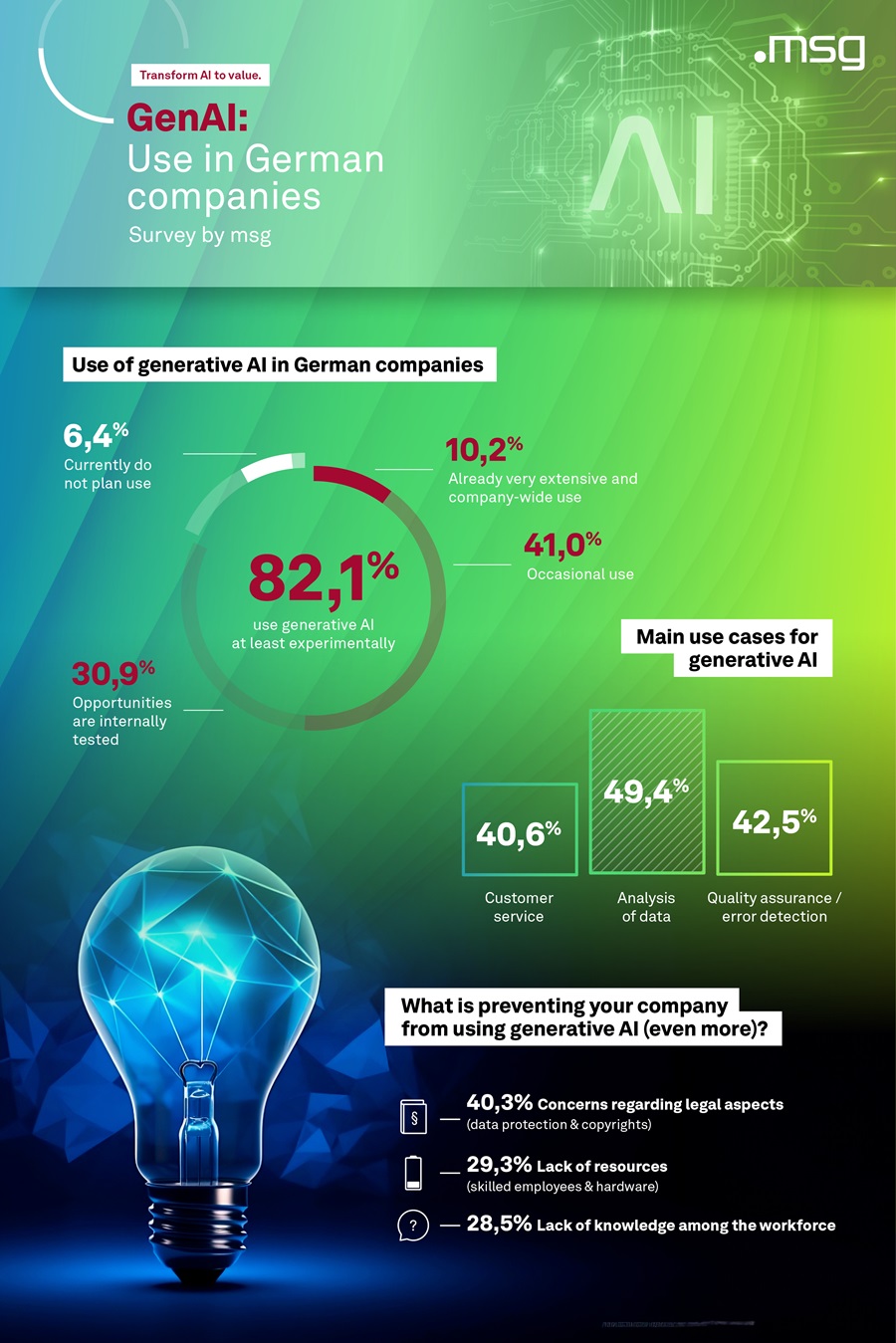Thursday, 07 December 2023
- Generative AI is already being used by 82.1% at least on an experimental basis
- The biggest obstacles to an increased use of generative AI are concerns regarding legal aspects (40.3%), a lack of resources (29.3%) and a lack of knowledge among the workforce (28.5%).
Generative AI is already widely used by German companies across all sectors. This is the result of an online survey conducted by the IT and consulting company msg, in which more than 500 decision-makers were questioned. One in ten respondents stated that generative AI is already being used extensively in their company; 71.9% of respondents either use the technology sporadically or are actively exploring its many possibilities. Only a small minority of 6.4% stated that generative AI does not play any role in their company environment to date.
“Generative AI enables companies to achieve unprecedented efficiency in their processes. And that in very different areas,” says Mark-W. Schmidt this result, head of AI at msg, explaining this result. For example, 80.3% of respondents plan to use generative AI even more intensively in the future. The survey shows that generative AI is of particular interest to most companies when it comes to analyzing data: Every second company is already using generative AI for this purpose or is planning to do so (49.4%). The use of the technology is also popular for quality assurance and error detection (42.5%), in customer service (40.6%) and for chatbots (40.1%) .
Uncertainties and a lack of resources are still stumbling blocks
At the same time, however, the survey also reveals that there are still a number of problems that stand in the way of more widespread use of generative AI. When asked what reasons currently still speak against intensive use or prevent companies from doing so, more than a third of respondents cited concerns about legal aspects (40.3%). Furthermore, a lack of resources (29.3%) and a lack of skills among the workforce (28.5%) are currently still standing in the way of comprehensive deployment.
In order to better understand the benefits of the technology and overcome potential obstacles, a third of the companies surveyed are planning to set up employee training courses and pilot projects (33.7% in each case). Just under one in four companies would like to involve external consultants (23.5%). "Generative AI is not yet fully tangible for many companies – especially in terms of its potential, but also its weaknesses. That's why it makes a lot of sense for companies of all sizes and in all sectors to get to grips with it and, if necessary, rely on the expertise of external bodies," comments Schmidt.
About the survey
The data used is based on an online survey conducted by INNOFACT on behalf of msg, in which a total of 523 decision-makers of German companies with 1,000 or more employees took part in the fall of 2023. The survey examined the extent to which generative AI is already being used in various sectors and what plans companies have for its future use. It also examined the challenges that are still preventing greater use. The survey was conducted for a specific target group and is representative of the respective population aged 18 and over. Further findings on the survey results with insights into the various sectors will be published in 2024.
The related information graphic can be freely used for editorial purposes.
Please reference the source: msg.



